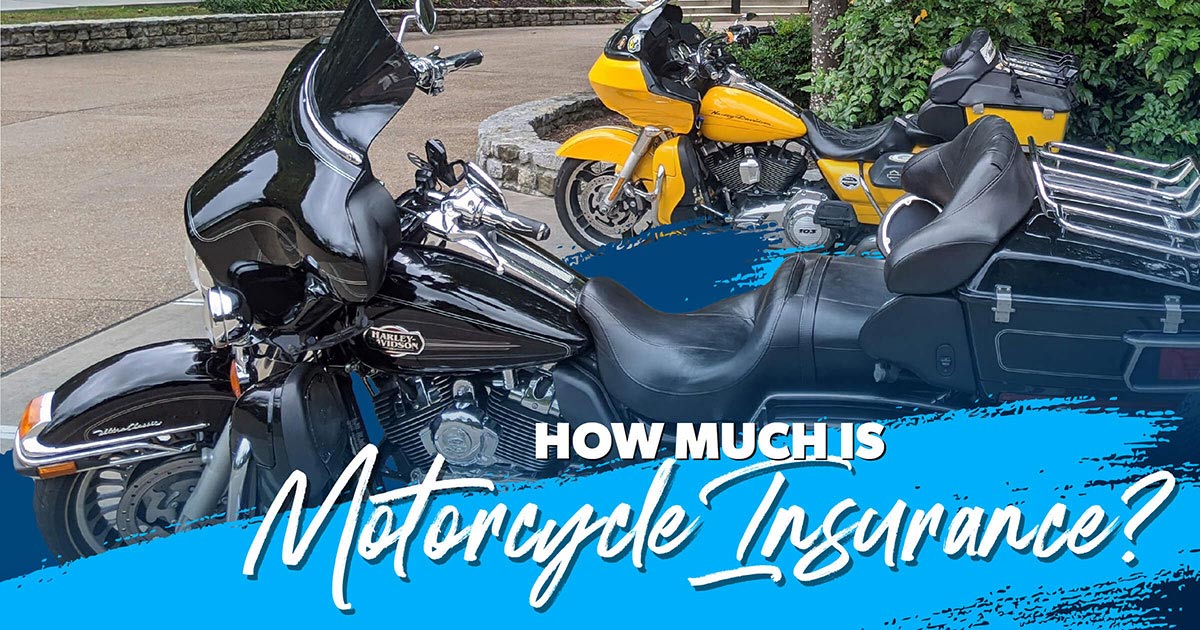Mar 11, 2024
How Much The Motorcycle Insurance Costs?
How Much is Motorcycle Insurance? A Rider’s Guide to Cost Factors
The thrill of cruising down the open road on a motorcycle is undeniable. But before you hit the highway, understanding motorcycle insurance costs is crucial. Motorcycle insurance protects you financially in case of accidents, thefts, or injuries. However, unlike car insurance, motorcycle insurance premiums can vary significantly depending on several factors. This article explores the key elements that influence motorcycle insurance costs, helping you estimate your coverage and navigate the world of motorcycle insurance quotes.
The Cost of Freedom: Why Motorcycle Insurance Differs from Car Insurance
There are several reasons why motorcycle insurance typically costs less than car insurance:
- Vehicle Value: Motorcycles generally cost less than cars. The lower value of the insured vehicle translates to a lower overall premium cost.
- Safety Features: Cars typically come equipped with more safety features like airbags and crumple zones, which can reduce insurance costs. Motorcycles often lack these features, potentially increasing risk in the eyes of insurers.
- Riding Frequency: Many people use cars daily for commuting, while motorcycle use might be more recreational. Less frequent use translates to potentially lower risk and lower insurance premiums.
However, despite these factors, motorcycle insurance can still be a significant expense. Let’s delve into the specific elements that influence your motorcycle insurance quote.
Key Factors Affecting Motorcycle Insurance Costs
Several factors are considered by insurance companies when calculating your motorcycle insurance premium. Here’s a breakdown of the most important ones:
- Rider Age and Experience: Younger riders with less experience are statistically more likely to be involved in accidents. This can lead to higher insurance premiums.
- Motorcycle Type and Engine Size: Sports bikes and high-performance motorcycles are generally more expensive to insure compared to cruisers or touring motorcycles. Larger engine sizes can also raise premiums.
- Riding History: A clean riding history with no accidents or violations can significantly reduce your insurance costs.
- Coverage Options: The level of coverage you choose impacts the premium. Liability coverage is mandatory, but adding comprehensive and collision coverage will increase the cost.
- Location: Where you live plays a role. Areas with higher rates of theft or accidents will typically have higher insurance premiums.
- Your Credit Score (Depending on State): In some states, your credit score can be a factor in determining your motorcycle insurance rate. Generally, a higher credit score can lead to a lower premium.
- Mileage: The more you ride your motorcycle, the higher the risk of an accident, potentially leading to a higher premium.
- Motorcycle Safety Courses: Completing a motorcycle safety course can demonstrate your commitment to safe riding and potentially qualify you for a discount on your insurance.
Getting the Right Coverage: Tailoring Your Motorcycle Insurance Needs
Motorcycle insurance comes in various coverage options, allowing you to customize your plan to fit your budget and risk tolerance. Here’s a quick overview of the main coverage types:
- Liability Coverage (Required in Most States): This covers your legal liability for bodily injury and property damage caused to others in an accident you are at fault for.
- Comprehensive Coverage: This covers damage to your motorcycle caused by theft, vandalism, fire, weather events, or collisions with animals.
- Collision Coverage: This covers damage to your motorcycle if you collide with another vehicle or object.
- Uninsured/Underinsured Motorist Coverage: This protects you if you are injured by a driver with no insurance or insufficient insurance coverage.
- Medical Payments Coverage: This helps cover medical expenses for you and your passengers in case of an accident, regardless of fault.
Finding Affordable Rates: Strategies for Saving on Motorcycle Insurance
Here are some tips to help you get the best possible rate on your motorcycle insurance:
- Shop Around and Compare Quotes: Don’t settle for the first quote you get. Compare rates from multiple insurance companies to find the best deal.
- Consider Discounts: Many insurance companies offer discounts for things like completing a motorcycle safety course, having a clean riding history, insuring multiple vehicles, or having anti-theft devices installed on your motorcycle.
- Adjust Your Coverage: Evaluate your budget and risk tolerance. Consider increasing your deductible (the amount you pay out of pocket before insurance kicks in) to lower your premium. However, ensure you can afford the deductible if needed.
- Maintain a Good Credit Score (if applicable in your state): In states where credit score is a factor, maintaining a good credit score can lead to lower insurance premiums.
- Bundle Your Insurance: If you also have car insurance, consider bundling your motorcycle insurance with the same company. This can often lead to discounts.
Beyond the Quote: Additional Considerations for Motorcycle Insurance
While cost is an important factor, it shouldn’t be the only consideration when choosing motorcycle insurance. Here are some additional aspects to keep in mind:
- Company Reputation and Customer Service: Research the reputation of different insurance companies. Look for companies with good customer service ratings and a history of handling motorcycle claims fairly.
- Coverage Limits: Pay attention to the coverage limits on your policy. These limits determine the maximum amount the insurance company will pay for a covered claim. Ensure your limits are high enough to cover potential costs.
- Replacement Cost vs. Actual Cash Value: Comprehensive coverage can offer replacement cost or actual cash value coverage for your motorcycle. Replacement cost covers the cost of replacing your motorcycle with a new one of the same kind and model. Actual cash value considers depreciation and pays out the market value of your motorcycle at the time of the loss. Replacement cost provides better coverage but might be more expensive.
- Review Your Policy Regularly: Your needs and circumstances may change over time. Review your motorcycle insurance policy annually to ensure your coverage remains adequate.
Motorcycle Insurance: An Investment in Peace of Mind
Motorcycle insurance protects you financially in case of accidents, thefts, or injuries. By understanding the factors that influence motorcycle insurance costs, comparing quotes, and choosing the right coverage options, you can find an affordable plan that offers the peace of mind you deserve while enjoying the freedom of the open road. Remember, a responsible rider prioritizes safety and prepares for the unexpected. Motorcycle insurance is a crucial part of that preparation.
Ready to Hit the Road? Taking Action on Your Motorcycle Insurance
Now that you have a better understanding of motorcycle insurance costs and factors, you’re ready to take action:
- Gather Information: List your motorcycle details (year, make, model, engine size), riding experience, and desired coverage options.
- Compare Quotes: Obtain quotes from multiple insurance companies online or through agents. Compare coverage options and pricing.
- Ask Questions: Don’t hesitate to ask insurance companies questions about coverage details, exclusions, and claims processes.
- Choose Your Coverage: Select the insurance plan that best fits your budget and risk tolerance while offering adequate coverage.
- Enroll and Enjoy the Ride: Once you’ve chosen your insurance company and plan, enroll in the coverage and hit the road with confidence!

Motorcycle insurance might seem complex at first, but with this information and a little research, you can navigate the process and find the right coverage for your needs. So, gear up safely, choose the right insurance plan, and experience the thrill of motorcycle riding with peace of mind.
More Details